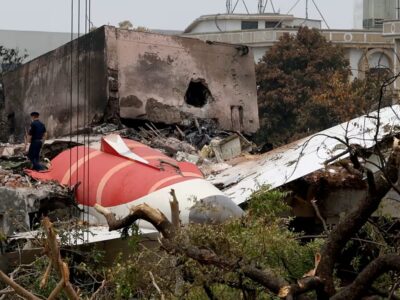|~|Food_little200.jpg|~|Suppliers have got a bad reputation throughout the hospitality industry. They are often criticised for poor customer service, unprofessional attitude and inconsistent supply and quality.|~|The relations between hotels and their suppliers appear to be in critical condition. Hoteliers constantly blame suppliers for poor supply chain management and inconsistencies in supply and say there is a glaring lack of product variety in the market. Hotel managers including housekeepers (roundtable May 2003), procurement managers (roundtable August 2003) and chefs (roundtable September 2003) blame the quality of suppliers operating in the Middle East. Suppliers have been tagged unprofessional, lacking in product knowledge and offering poor customer care.“The quality of suppliers are not what we are used to,” said John Gallacher, area purchasing manager, Arabian Peninsula, Hilton International at the procurement managers’ roundtable hosted by Hotelier Middle East in August last year. “In Europe, you can buy 80% of your grocery supplies from one supplier. Here if you are lucky, you can buy 10% from two suppliers.”Surprisingly, suppliers candidly agree this is the case, that there are glaring inconsistencies and a lack in the quality and variety of products available in the market. “Yes, there are inconsistences in supply,” says Ranjan Salis, general manager of Tomaco LLC, a leading hospitality supplier in the region. “This is totally contradictory to what I should be saying, but I have to be honest. But why is this? Both buyers and suppliers have to be equally blamed for this state of affairs. This is the result of being a price driven market but who drives the market – it is the buyer.”Suppliers unanimously say the lack of consistency in supply is a by-product of price dominance. Hospitality is a lucrative industry in the region and every retailer worth his mannequin is jumping on to the supplier bandwagon, regardless of capabilities. There are no barriers of entry; anyone can set up shop and start operations. As a result, the market is fragmented and newcomers use price to take on established players. Whilst this keeps the suppliers on their toes and cuts prices to the bone, selling products below cost is not sustainable or feasible in the long run and ||**|||~|suppliers200.jpg|~|Many local hotels complain about the poor and inconsistent supply of fresh fruit and veg. However, says Jayaram it is not that market has poor suppliers, but that the market itself is poor.|~|creates long-term implications for the industry.
When price scores over product quality, in order to remain competitive, suppliers are goaded into offering cheaper alternatives. Quality is compromised, but suppliers supply what the market demands, argues Salis.
Companies do not carry an inventory either as they are constantly chasing after less expensive options and do not want to be faced with idle stock. The recent currency fluctuations haven’t helped matters either; the strengthening of the Euro against the dollar has led to price increases in the Middle East.
Coupled with annual manufacturing inflation of about 3-5% per annum, cost prices have risen by at least 30% over the last years.
To overcome this, Salis claims he has impressed upon his manufacturers not to impose any further price increase other than that necessitated by currency fluctuations. He says supplier margins have taken a beating, “we have had to do this in order maintain market share and keep our products in place,” he explains.
Inconsistencies in supply plague every aspect of the hospitality industry from operating suppliers and distributors to F & B and furniture, fixtures and equipment distributors. Jonathan Pardoe, general manager of Planters Dubai, says historically there has been a lack of variety particularly in terms of plant containers. Unless sourced from abroad, these are rarely available in quantity and variety.
Subramanian Jayaram, CEO of Barakat Foodstuff & Vegetable LLC, Dubai, says this is because the region depends heavily on imports, especially in the case of fruits and vegetables. Perishables are prone to seasonal variations and render items unavailable but he claims they always offer clients quick alternatives.
“There was a no availability of meat in this market for a while but that is because every chef wants tender loin,” says Jayaram. “If you slaughter 100 animals, you get about 40 kilos of tender loin but what do you do with the leftover four tones? This makes tender loin expensive.”
In response to chefs’ accusations that warehouses and transporting trucks used by suppliers are not up the mark, Jayaram says the problem lies with the fruit and vegetable market itself. The market in Hamriya is 25 years old and has infrastructural drawbacks that suppliers can’t overcome. For instance, he explains, “the market doesn’t have any drainage facilities and sea water flows in at high tide. Every evening if we don’t take anti pest precautions, we have cockroaches infesting the site. In spite of these limitations, we are trying our best to meet standards. Twenty years ago, they used to supply fruits and vegetables to hotels in open trucks, we were the first company to introduce chilling systems in trucks.”
Every emirate in the UAE sets its own food control laws and Dubai chefs accuse Sharjah of lax health and hygiene rules especially with regard to food production and manufacturing. “So we find a lot of people importing products into Sharjah and transporting them to Dubai. Dubai municipality is pushing very high standards but suppliers are bringing in low quality of products, which makes it very challenging for us,” said chef Neil Firman of the Hyatt Regency.
But, says Jayaram, hardly 5% is imported through Sharjah today and claims all Barakat products are directly imported into Dubai. Because of the emphasis on price, to reduce their overheads and operating costs, suppliers employ even illegal immigrants to work for them without labour certification, thus spawning an incompetent sales force.
“Those suppliers who don’t spend money on adhering to proper standards quote low prices and trigger off unhealthy competition. As far as I am concerned, if I improve on professionalism, I don’t save any anything,” explains Jayaram.
Most suppliers agree that the quality of salespeople leaves a lot to be desired but alleges that the quality of buyers needs an upgrade as well. They say only a handful of buyers in the market understand what they buy and call for enforcement of minimum qualifications for buyers and sellers.
Competing purely on price has several drawbacks. Mirsad Burina of Faisal Al Rahmani Trading in the UAE, says hotel developers are killing contractors and suppliers in the region by driving down prices. The buyers are encouraging the price war; “they take my quotations,” claims furniture supplier Burina, “and compare it with that from a small corner shop. Of course, the corner shop will be cheaper but they will not be able to offer the same quality. Every supplier must be able to stand his ground with regard to their prices, what happens here is that in order to secure an order, a supplier compromises on quality.”
No manufacturer or distributor can guarantee 100% quality adherence, but a reliable supplier or distributor is equipped to handle with defective products. Client servicing by smaller companies may not always be up to the mark, leaving hotels in the lurch.
“Will a smaller company be able to offer the consistency, back up support and quality assurance I can offer?” asks Salis.
“I think not. That is a self inflicted risk a buyer has to cope with by associating with a rank newcomer as opposed to more established companies.”
Despite the market fragmentation and all out price war, Salis is skeptical about an impending shake up. Industry pundits have been predicting this for the past three to four years but hospitality suppliers are mushrooming even today. The regional hospitality sector is booming and everybody is eager for a slice of the action.
The speed of development guarantees everybody pieces of business. But just as companies are springing up, there are several others that go under, further distorting the supply chain. The minute everything polarises towards three or four big players, the situation is bound to improve.
The supplying and buying process interlinked and generated from the buying process. If buyers can approximate their annual consumption figures for fast moving items and sign annual contracts with suppliers, suppliers claim they will supply products of the right quality at the right price. Suppliers also want hoteliers to try and get a feel for trading and logistical management and the logistical problems traders face in importing products.
They claim most buyers do not understand the mechanics of a trading company. “They [buyers] think the minute they fax an LPO, an order is in process and that goods should be delivered to them within days. That is not how the importing process works; it is a lengthy process at our end. If buyers understand this, things will be a lot better,” says Salis.
Most suppliers have on their wish list the formation of industry bodies to streamline and regulate buying and selling in the market. Textile and gold merchant associations work very well and the dealers reap the benefits of working in tandem with one another.
Associations are not cartels; they nurture the industry and encourage healthy competition by laying ground rules. Suppliers favour fair competition and level playing grounds and an over haul of existing trade practices. Bad debts don’t seem to be as much of a problem in hospitality supply as it is in some other industries like construction for instance.
One way of weeding out quality is for hotels to categorise suppliers. Just like hotels are graded into different categories, suppliers can be accorded grades as well on the basis of their adherence to standards. Suppliers that want to be recognised as top notch or A-list, should be asked to take part in certain exercises which gives the qualification. Supply can be streamlined this way.
“If the prices of a five star supplier is compared to a four star supplier, that doesn’t work,” says Jayaram. “Every body has access to products but the product needs to be maintained in high quality.”
“Quality is available and can be found,” claims Pardoe. “The recently formed Housekeepers Association goes a long way to dealing with this problem by holding regular meetings to discuss such issues and by creating ‘top 10’ lists of suppliers according to ratings given by each hotel housekeeper. This is an excellent way for both existing and incoming housekeepers to find quality products and services within the local market.”
||**||







